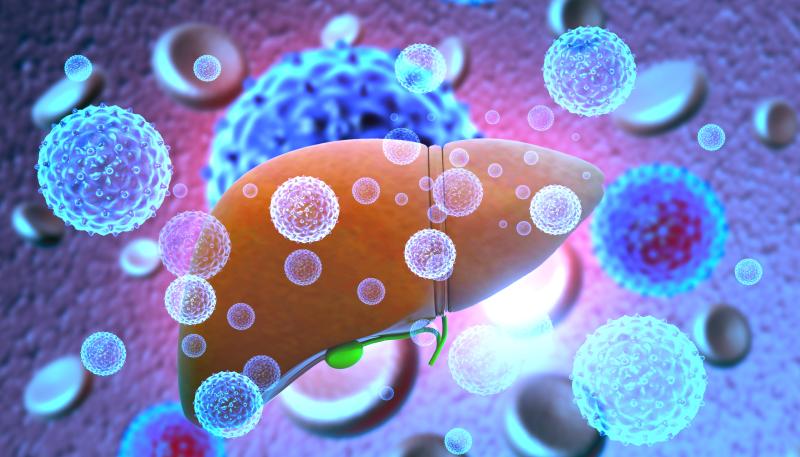
Tenofovir disoproxil fumarate (TDF) for hepatitis B virus (HBV) infection suppresses hepatocellular carcinoma (HCC) risk better than entecavir, a new study has found.
Researchers retrospectively assessed 29,350 HBV patients (mean age, 52.9±13.2 years; 63.7 percent male) who had received first-line treatment with either TDF (n=1,309; 4.5 percent) or entecavir (n=28,041; 95.5 percent). Participants were followed for 3.6 years for the determination of the cumulative incidence of HCC.
A total of 1,394 patients developed HCC over the observation period, yielding an incidence rate of 4.7 percent. The 1-, 3-, and 5-year cumulative incidence estimates were 1.2 percent, 4.3 percent and 6.8 percent, respectively. Only eight of the HCC cases occurred in the TDF arm (0.6 percent), while the remaining 1,386 (4.9 percent) had been treated with entecavir.
After propensity score matching, patients who were treated with TDF showed a significantly lower risk of developing HCC than their entecavir counterparts (weighted subdistribution hazard ratio [SHR], 0.39, 95 percent confidence interval [CI], 0.18–0.84; p=0.016). This remained true even when analysis was restricted to noncirrhotic patients (weighted SHR, 0.15, 95 percent CI, 0.03–0.74; p=0.02).
The 1-, 3-, and 5-year cumulative incidence rates of HCC in entecavir- vs TDF-treated patients were 0.4 percent vs 0.1 percent, 1.3 percent vs 0.7 percent, and 2.2 percent vs 1.2 percent, respectively.
The present findings warrant further validation in other populations, said researchers. “Future prospective studies would also be valuable to confirm our observations.”